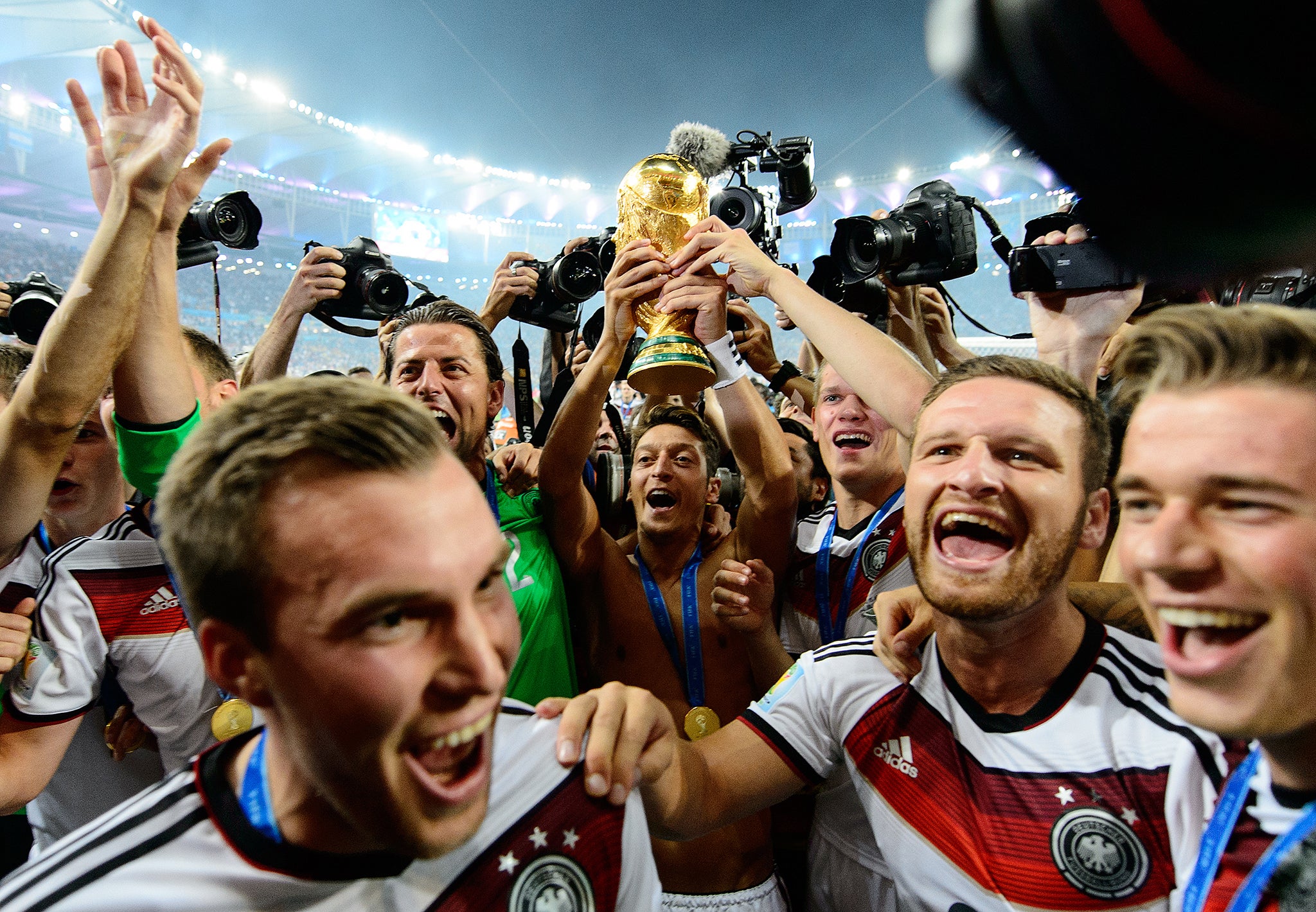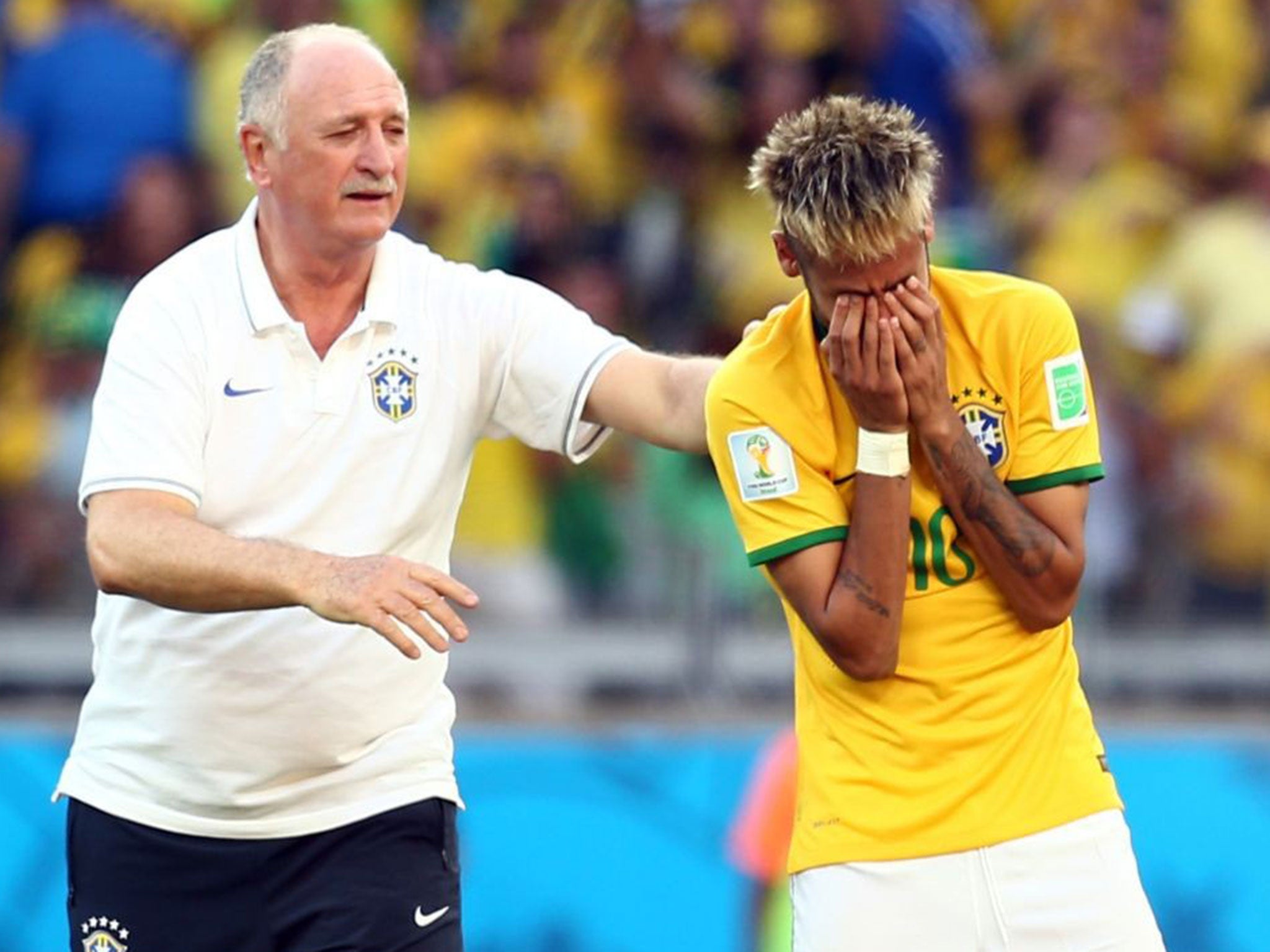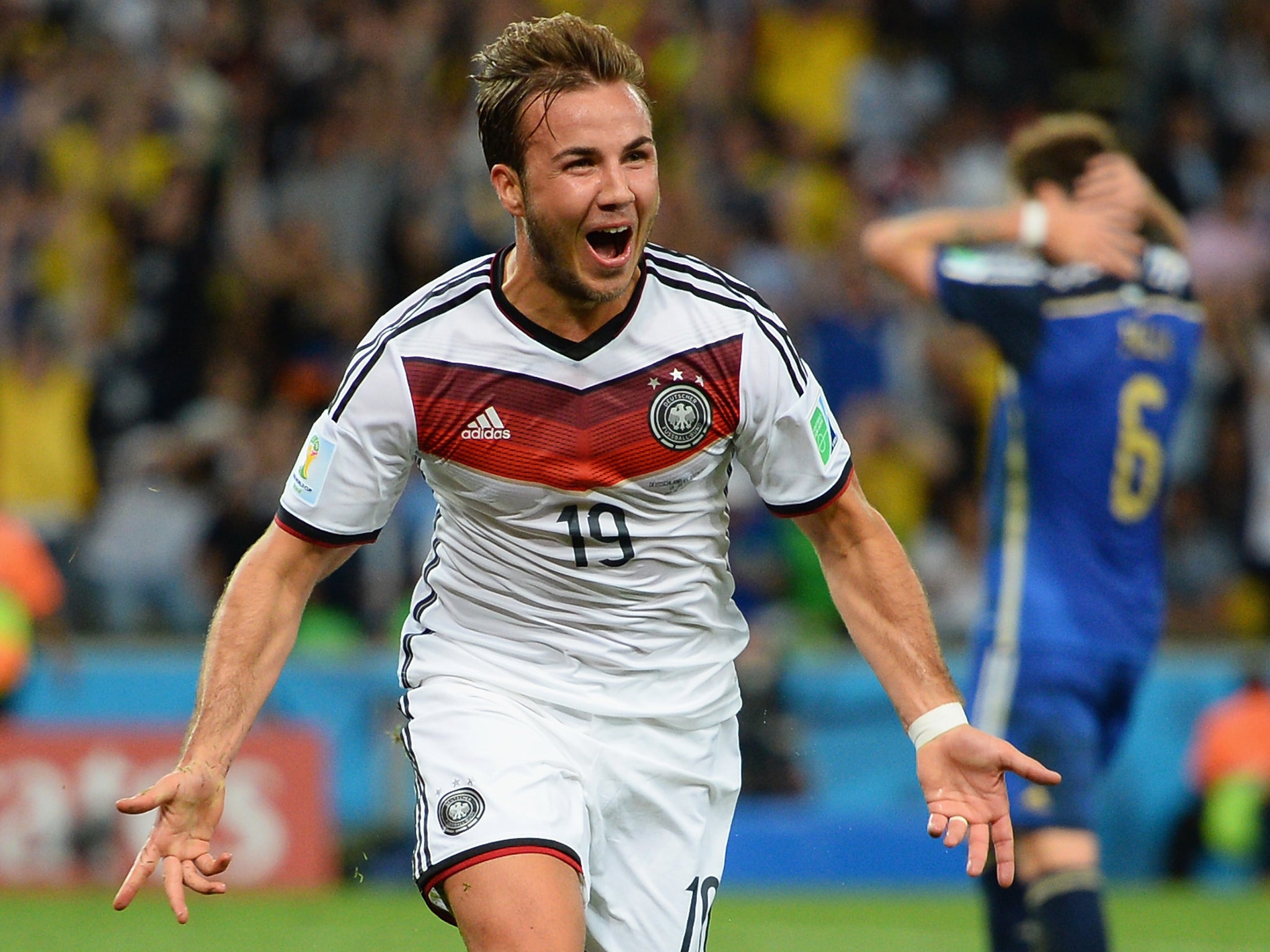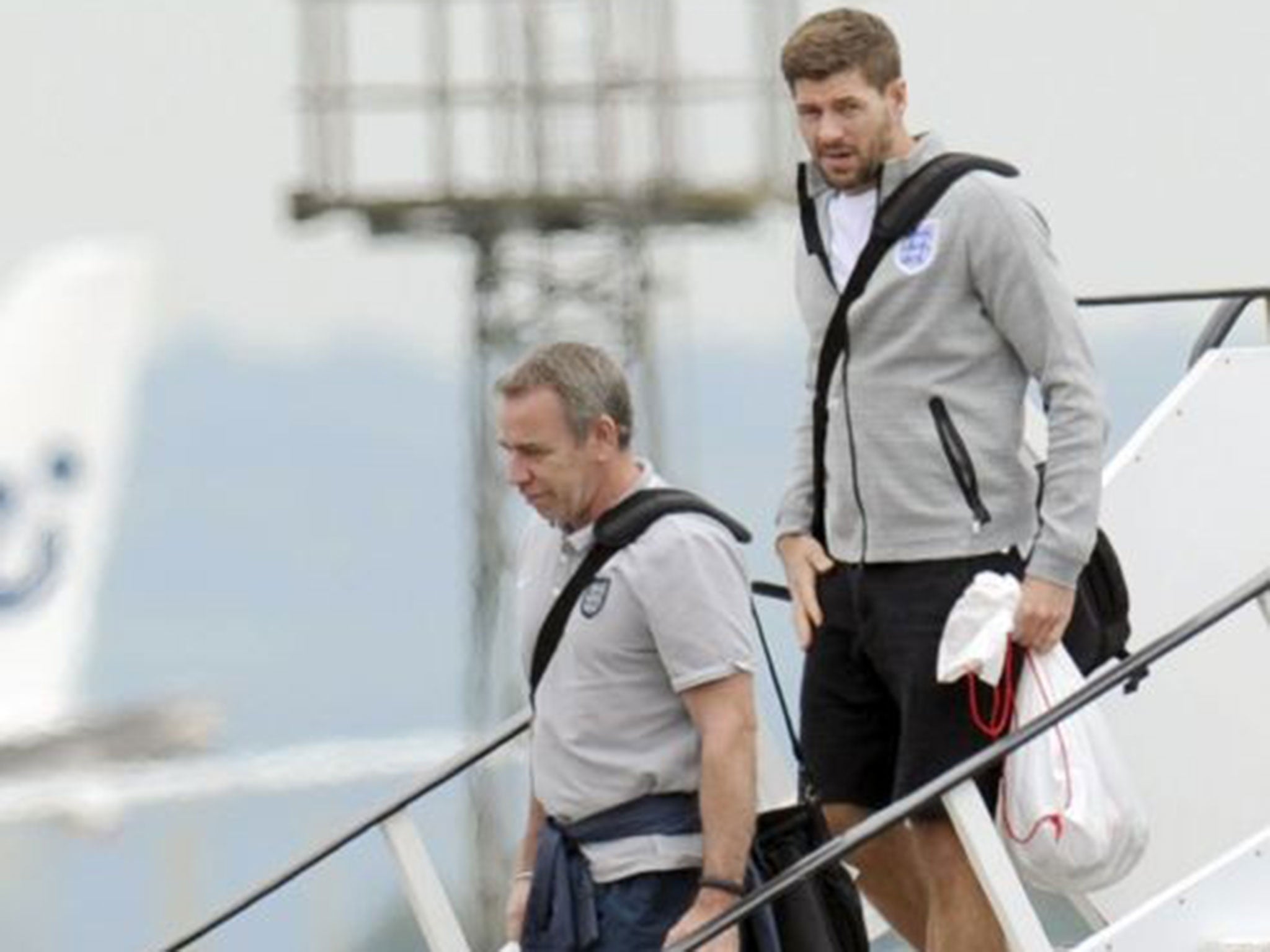World Cup 2014: A beautiful tournament that covered up some ugly truths
Some fantastic football managed to overshadow many concerns, from corruption at Fifa to the incredible costs for Brazil. The Independent's chief football writer Sam Wallace looks back on a tournament for which the whole story has perhaps not been told

The Policia Militar in Brazil drive black 4x4s with a matt finish, the kind you only usually see in Premier League training ground car-parks. Walking past Botafago metro station in the centre of Rio de Janeiro on Saturday night I stepped out of the road to let one pass and from the open back window was a gun barrel casually resting on the frame, pointing out towards the busy city streets.
This has been the story of Brazil 2014, a huge but discreet police operation and nowhere more than at the heart of the World Cup in Rio’s tourist areas. As a television spectacle, in the stadiums and the Copacabana backdrop to the BBC and ITV studios, the World Cup must have looked like a ravishing, sunlit party. For Rio itself, a temporary return to its 1930s glory-days as a playground for millionaires and Hollywood stars when it was the “Cidade Maravilhosa” and today’s inequalities were much less of concern.
On the ground, it felt different. If it took this many policeman to ensure a city operated safely, what would it be like when they all went back to their usual hours? The estimated security bill for the Brazilian state is £500m. Two days before Sunday’s final, the authorities made it clear they were taking no chances around their marquee game with the arrest and jailing of 17 activists under “temporary prison” legislation at the notorious Bangu penitentiary outside Rio.
It is remarkable that the various Brazilian police forces have been unable to stop a 64-year-old Englishman, Ray Whelan, suspected of ticket fraud, evading arrest by walking out of the service entrance of the most famous hotel in Rio. But they have no problem rounding up those whom they only suspect might disrupt the proceedings.
The World Cup finals began with the Sunday Times’ most comprehensive investigation yet into the wholesale corruption of Fifa over Qatar’s successful bid to host the 2022 tournament, an issue that had been conveniently parked for the duration of the Brazil 2014. In the main because Sepp Blatter, the Fifa president, has kept such a low-profile - so much so that some have wondered whether he has been in the country for the duration.
As usual, Fifa will leave with its profits from the event, estimated at £580m, untouched by the Brazilian taxman, an accord that every host nation has to sign up to, along with other privileges that would be beyond ordinary citizens. On Sunday night, Blatter found himself much less unpopular than Brazil’s president Dilma Rouseff, who was loudly booed every time she appeared on screen by the predominantly middle-class Brazilians who attend the games. It was a first for Blatter, who may request that Dilma accompanies him on more official events.
This World Cup finals easily outshone the drab 2010 tournament for the sheer quality of football. It got off to a flier with Brazil’s victory over Croatia and then onto the Netherlands’ 5-1 destruction of champions Spain. A general leniency from referees helped at times, but may also have encouraged the spike in fouls after the group stages. For the organisers, it could not have worked out better - drawing attention from the pre-tournament concerns about the deaths of stadium workers and establishing an unstoppable momentum around the football itself.
After the first two rounds, the narrative had become whether this was best World Cup of all-time - a debate that flagged in the four quarter-finals over which only five goals were scored. But even so, it squeezed out other less-flattering issues. When a motorway flyover collapse in Belo Horizonte killed two people four days before Brazil’s semi-final there against Germany, the victims were not even afforded a minute’s silence before the game. In fact, you rather got the impression that it was viewed by the authorities as an inconvenient downer on the general mood.
At that point, nothing was permitted to interfere with the Brazil team’s progress. While the country’s major television channels were very much on-message, treating Neymar’s injury like it was the Kennedy assassination, the mood among ordinary Brazilians was different. They had thought for some time that Luiz Felipe Scolari’s team were mediocre. No-one expected the semi-final to be 7-1, but even so, for all the gloomy talk of “Maracanazo II”, largely from those of us in the foreign press, there has been no wide-scale wailing in the street. It’s only football, after all.

When Mario Gotze popped in the winner in the second half of extra-time in the final on Sunday, it took the total number of tournament goals to 171, equalling the record set in France in 1998. The German football nation is superb, having produced many of the key players in the great Bayern Munich Champions League winning team of 2013 too. But generally, this tournament has proved that what qualifies one as a good player in Europe’s big-money leagues does not necessarily translate to a successful summer tournament.

Teams like Colombia, Costa Rica, Algeria and the United States showed that good players, especially those who have been lightly-raced over the course of a domestic season, can come together and perform with the so-called best in the world. As for England, their performance left a mere thumbprint on this tournament. In terms of fallout, the Football Association and Roy Hodgson have benefitted from the distractive capacity of an exciting World Cup.

The television viewing figures have been remarkable, holding up long after England were eliminated. The BBC attracted 16.7m viewers for the final, confirmation, at the very least, that the love burns stronger than ever for football in the United Kingdom, however much the home nations’ performances try to kill any domestic optimism.
Before Sunday’s final, the Fifa montage machine was in full effect on the big screens. If you went to a game in Brazil dressed as, say, a sausage, or held up a sign saying that this was the best World Cup ever, then there is a good chance you were on it. This is how Fifa would like the world to see its four-yearly pageant, an exuberant meeting of the nations with more face-paint than a Sioux Indians re-enactment and some football too.
Once again, one suspects Fifa has got away with it. None of the stadiums collapsed, the protesters spent the last weekend in jail and the football was pretty good. The fundamental questions, like how the hell it chose Qatar for 2022, will not be answered now. Perhaps they never will. But now that Fifa has gone, Brazil itself will discover the unvarnished truth as to whether it really was all worth it.
Join our commenting forum
Join thought-provoking conversations, follow other Independent readers and see their replies
Comments